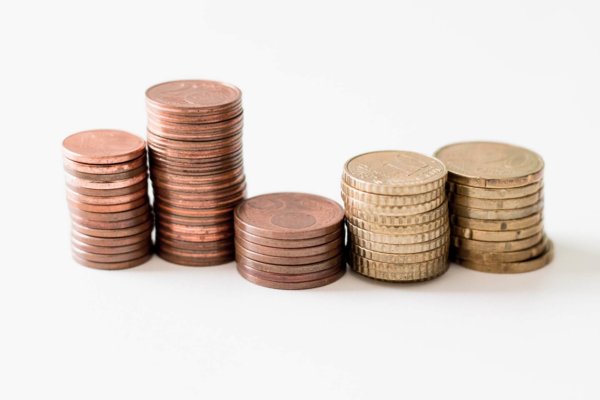The Golden Rule Of Money We Should All Follow - A Tenth Of What I Earn Is Mine To Keep
If you're someone who likes to be precise with your money, you can still keep track of it while allowing it to go further in retirement. However, is there a golden rule that makes saving much easier?
This is where the 10% rule comes into play, as you can save 10-20% of your earnings each month to put it towards a savings goal of your choice, though retirement can often be the primary use for this as you can accumulate compound interest.
To find out how this rule works and the ways you can use it, read on below.
Also read: 18 of the Best Under The Table Jobs for Direct Cash

How Does The 10% Rule Work?
This rule works best for those who have yet to learn how much they should save and is an excellent benchmark to use, but this may only apply to some, as some may decide to go for 15% or even 20% if they are higher earners.
Even though it is called a rule, it's more of a commitment as you are deciding to keep that amount from your pay and set it aside for savings and retirement. This can be calculated before any expenses or taxes are taken out of your account.
We've mentioned retirement, but this commitment can be put towards any savings goal you have, but you must have some sort of emergency fund to avoid you having to dip into your account.
If you have a fixed salary, you have a pretty consistent method of working out this rule, as this can make it easier to realize what you're saving. Still, your expenditure and income can take a lot of discipline and vigilance.
Also read: Rich Vs Wealthy

What You Can Use This 10% For
With the rule defined, you now have to have something to put that money towards, which can usually be the most challenging part of this method. With a clear goal in mind, you know how long it will take you and what to do to manage it.
Some examples of what you may use it for we look at in more detail are below, and might even give you some idea of how much you could save.
Saving For Retirement
Depending on what plan you're on and how much your employer contributes, you could see your compound interest work well for you here. However, some prefer traditional IRAs or Roths as they may suit people's income brackets better than others.
Even with 10%, this may not be enough for retirement. You don't want to rely heavily on social security, even if you've built up a lot of credits over your working life. This may mean you start to apply more of your income as you get older.
Investments
If you have money tied up in mutual or index funds, you may already know how much you want and start building up a portfolio. This may not be doable by some, as to get the most from your money, you'll want to save somewhere between 15-25% of your earnings.
Whether in equities, bonds, or funds, starting with investing something is a good way forward, and if you can get an account manager to oversee the fund for you and supports it for you, this can be preferable to get stressed over your choices.
Also read: Best Under The Table Jobs for Direct Cash
Future Goals
If this is to start up your own business or personal project, this may be something that you'll have to be exact with you. For this, you should make a financial plan where you find out how much it will cost precisely and make tweaks to your budget every month.
The problem with these goals is that they can take 10-plus years to fully realize, so many can lose the motivation to save for them. There are ways you can generate funds quickly through products like CDs, but these do require a significant lump sum to get started.
Emergency Fund
This you'll need if you have any sort of asset, and the unthinkable happens when you have to dip into your savings, which erodes any motivation going forward.
For this, you may want to think about opening a basic interest savings account, which may sound low with an average of 0.9%, but you can look around for the best deal, and you may find ones that are around the 2% mark.
Be aware that for some of these accounts, you need to have a minimum amount for the account to stay open, which can range from $300 to $500, and some may ask for an amount to be deposited each month.
Be on the lookout for banks who offer these as they are more likely not to have many requirements, and this way, you can keep your money secure even if interest rates aren't particularly high.
Also read:Online Jobs That Can Legitimately Make Money Working From Home
Should I Follow This Rule?
This will depend entirely on your income, as if you don't find yourself with a lot at the end of the month, a plan like this may put you in a worse position, especially if you have debt that is taking up a good majority of your income.
To find out if this is for you, have a look at all of your outgoings and see what you are left with, and be sure that you have some sort of emergency savings, which can be between 3-6 months worth of pay.
Also read: 6 Super Simple Ways to Increase the Value Of Your Home

The Bottom Line
The first thing to do before saving for the future is to look at the present and see what you are holding currently, as it's likely that as you get older and earn more, you'll want to put more of your income away for retirement.
This ensures that you can retire comfortably, so you’ll have more freedom and not feel you have to work longer than you’d like to.
Your check stubs can be used as part of tracking your finances, use them to your advantage.
 Our customer support is available 24/7:
Our customer support is available 24/7:

